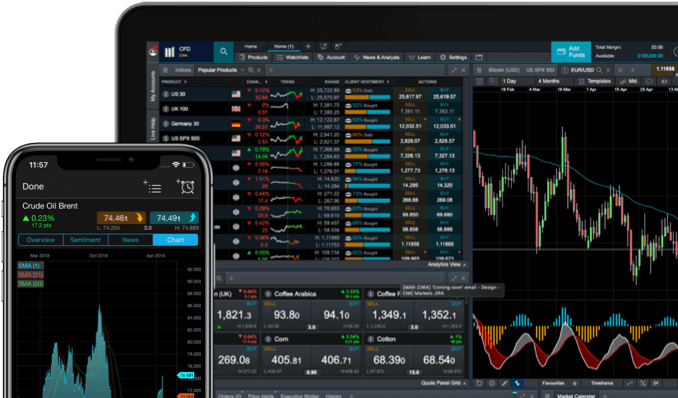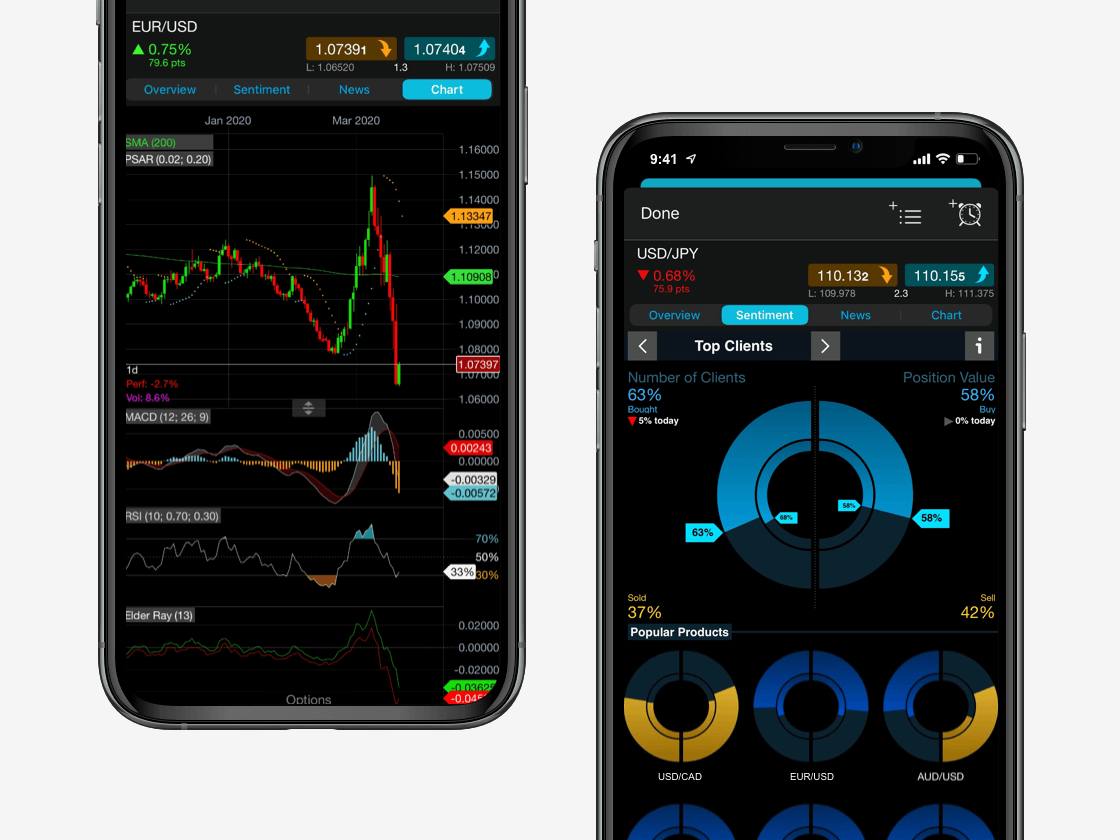What is share trading?
When share trading, you buy and take ownership of company stock and sell the stock for a higher price with the aim of making a profit. In this instance, you would normally open a ‘nominee’ account. A stockbroker will often place trades on your behalf, for a small fee. Most share trading takes place on stock exchanges where public companies are listed. This method involves buying and selling shares outright through spot or forward contracts.
Investment is not limited to stock market indices and shares. You can also invest in exchange traded funds and mutual funds, or diversify your investment portfolio even further by investing in stocks and bonds. Alternatively, you can use derivative products like spread bets - UK only - and contracts for difference (CFDs) to trade shares. This way, you can take a long or short position and take advantage of rising and falling share prices. With spread betting and CFD trading, you do not take ownership of the actual shares you are trading. You simply speculate on whether you expect prices to rise or fall and take a position accordingly. For this reason, you do not pay stamp duty when you spread bet on shares or trade share CFDs in the UK, however, you do pay capital gains tax on CFDs and laws are subject to change in the UK.
Discover the differences between CFD trading vs traditional share trading here, in order to ensure that you find the right product for you.



















